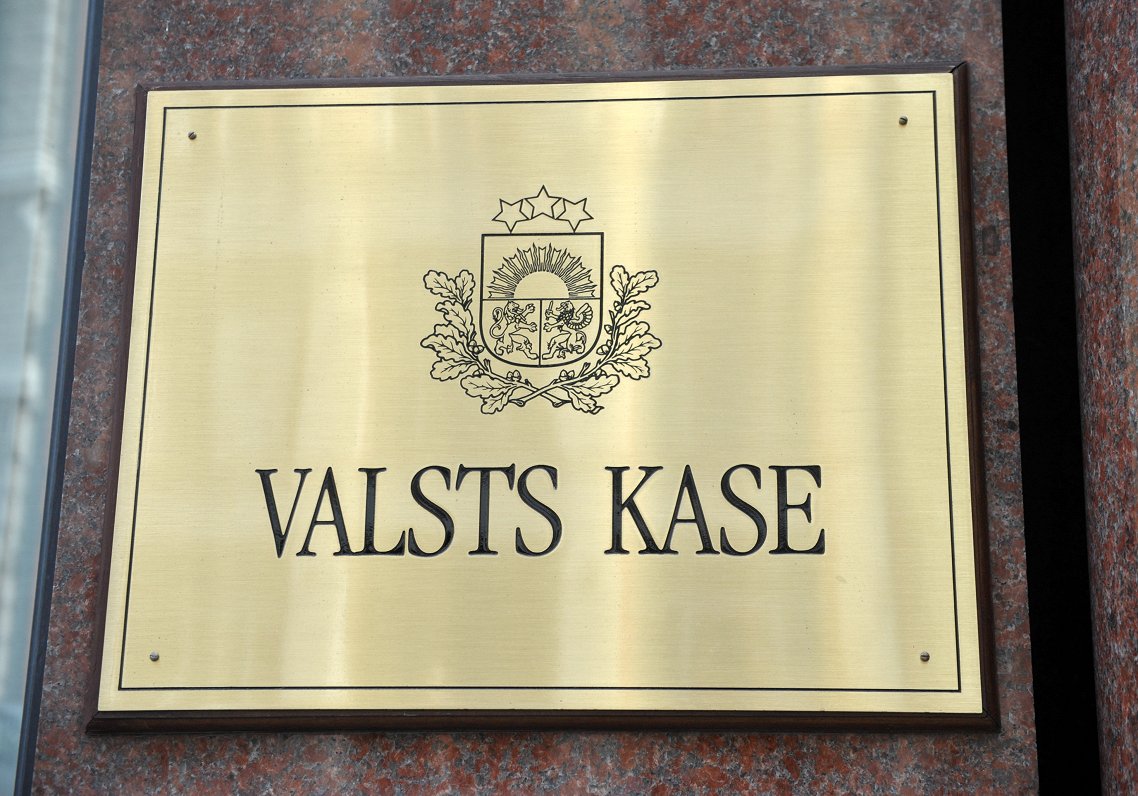At present, general government debt amounts to around 17 billion euros, or 40% of gross domestic product (GDP).
Latvia's public debt remains among the lowest among the Member States of the European Union and the euro area. “And credit rating agencies that assess Latvia's creditworthiness as a borrower also note that our debt is moderate,” said deputy treasury manager Jānis Rozenbergs.
Such an assessment allows Latvia to borrow funds and refinance the debt at relatively advantageous rates. Next year Latvia plans to increase and borrow an additional EUR three billion.
Consequently, Latvia's debt level will reach EUR 20 billion next year, which is 41% of GDP.
“Both to finance the budget deficit and to refinance the indebtedness of previous years, and we also issue state loans to local governments, local government capital companies, state capital companies, ports, institutions of higher education and the like,” Rozenbergs told LR.
He added that as long as the state budget is planned with a deficit, it will have to be financed on borrowing. Next year's budget will not be an exception either, and the state budget is planned with a 2.8% deficit.
Public money is borrowed in both international and internal financial markets.
“As well as we issue savings bonds that are aimed directly at the people of Latvia,” Rosenberg said, noting that demand for savings obligations is increasing from the people of Latvia. “And already, Latvian residents have invested almost 250 million euros in savings bonds. It is Latvian state loans, but only from its residents.”
Inna Šteinbuka, head of the Fiscal Discipline Council, said that, at least for now, the amount of debt is proportionate. “However, in Latvia, people often exaggerate the risks of our public debt and budget deficit. And that's probably because the proverb “debt is not a brother” is very deeply embedded in our subconscious. We fear debt,” Šteinbuka said.
She believes there is no reason for fear. Moreover, timely repayment of debt and interest indicates the solvency of the state, and Latvia is doing relatively well in this regard.
“In principle, Latvia has very high ratings in rating agencies. This is very significant because it helps us borrow at a reasonable price, as trust is high,“ Šteinbuka said.
But there is one factor – Latvia's geopolitical location and aggressive neighbor Russia. This does not boost positive expectations and confidence in financial markets.
“This is one of the factors why, despite very favorable ratings, we can't borrow cheaply. Moreover, the current situation is not too favorable due to restrictive monetary policy, which of course has also made servicing of existing debt more expensive,” explained Šteinbuka.
The fact that Latvia has to pay more for borrowed money was also emphasized by SEB Bank economist Dainis Gašpuitis saying that the fact that the amount of public debt is growing is not a very positive tendency. However, it is not a cause for concern as long as public debt does not grow rapidly.
How to assess the Treasury's plan to borrow an additional three billion euros in financial markets next year? “The volume is significant enough. It may also be possible to save quite substantially if the moments when to attract this funding are used more correctly,” Gašpuitis said.
The economist explained that next year it will be important to hit the right moment for the country to borrow in financial markets, because the price of money will be still high in the near future, but that will change next year. “The cost of money is most likely to be cheaper in the second half of next year, which means the monthly spread can mean significant savings when, where, and how to do so,” Gašpuitis said.
Consequently, the Treasury will have to make careful decisions next year when to borrow so that servicing the public debt costs as little as possible, according to the economists surveyed.





























